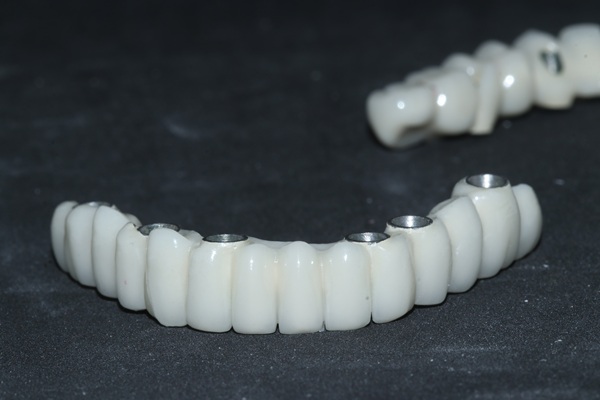What Can Happen if Tooth Decay Goes Untreated

Some people may not realize how improper oral care can have a negative impact on their overall health. Untreated tooth decay does not heal without treatment and usually worsens over time. When those with multiple cavities ignore their dental needs, they may be putting themselves at risk for a variety of other medical problems, some of which can have long-term physical effects.
The causes of tooth decay
Most forms of dental decay are caused when individuals do not brush long enough or fail to reach certain parts of the mouth, such as the rear molars. Over time, food particles get caught in the teeth and cause plaque and tartar, a hard, scaly film, to form on the teeth. This encourages bacteria to form and eat away at the teeth. Once the bacteria reach the dentin of the tooth, it forms cavities. Not only do these cavities usually cause pain, but they can also trigger other problems in the body if they go untreated.
Infection
When cavities form and become large enough to catch and trap bacteria, an infection may set in. As bacteria builds up, it can enter the bloodstream via saliva and cause infections elsewhere in the body. This can result in several different issues, including:
- Intermittent fevers
- Fatigue
- Possible organ damage
When cavities form, it can take some time for an infection to set in. However, once this occurs, it may take considerable time to reverse the tooth decay and heal the body, especially if multiple cavities are present.
Tooth abscess
A cavity can cause the dentin and roots inside a tooth to die, and when this happens, bacteria can cause an abscess around it. This is usually quite painful and can result in discomfort while chewing or speaking, as well as swelling in the gums near the tooth, which usually causes sensitivity and even bleeding. Because of the risk of serious infection, a tooth abscess will likely need attention from a dentist before it grows worse.
Tooth loss
When a cavity goes untreated, tooth decay will likely continue until the damage becomes untreatable and a dentist must remove an affected tooth. Decaying teeth may also loosen and fall out or break on their own, a problem that can affect the surrounding teeth, causing them to shift. The longer a cavity is allowed to grow, the greater the risk of tooth loss.
Gum pain and swelling
Cavities can affect the entire mouth, including the gums. Infected teeth and increased bacteria may trigger gingivitis, or swelling of the gums. When this occurs, the gums become irritated and may bleed when affected individuals brush their teeth. If the cavity goes untreated, this swelling may become worse and eventually lead to loose teeth.
Conclusion
Untreated tooth decay can cause serious health issues in people of all ages. Brushing and flossing daily, as well as visiting a dentist for cleanings and regular exams, can prevent this problem and keep a smile beautiful and healthy for years to come.
Request an appointment here: https://www.kennethbauerdds.com or call Kenneth J Bauer DDS & Daniel K Bauer DMD - Kenneth J Bauer DDS, A Professional Corporation at (707) 691-5250 for an appointment in our Santa Rosa office.
Check out what others are saying about our services on Yelp: Read our Yelp reviews.
Recent Posts
Mouthwash, or mouth rinse, is commonly recommended by general dentists to add to an at-home oral hygiene routine. These rinses help eliminate harmful bacteria in the mouth that can cause decay, gum disease, and bad breath. However, some individuals have concerns that mouthwash can harm their oral and overall health.There are several types of mouthwash…
Implant-supported dentures are an excellent choice for patients who want a durable and easy option for replacing lost teeth. This restoration allows patients to enjoy their favorite meals once again and go about their regular activities with the denture securely in place. There is no need to worry about the dentures slipping or coming loose…
Receiving a teeth cleaning can be a great way to ensure teeth stay healthy and there are not any serious oral health concerns that develop with the teeth and the supporting structures. By having a full understanding of what each teeth cleaning type does and is used for, you can gain a better understanding of…
Getting a dental filling is a common procedure where a dentist restores the integrity of a decayed or damaged tooth. After placing a filling, you need to take the correct steps during recovery to ensure its durability and long-term effectiveness. Avoiding certain activities and habits promotes long-term oral health and prevents potential complications.One of the…


